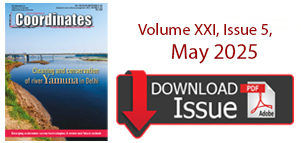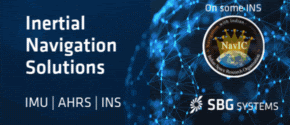| LBS News | |
LBS
Avast and Aircel partnership
Avast, the global leader in digital security products, recently announced a strategic partnership with Aircel, one of India’s leading mobile service providers. Under this partnership, 85 million subscribers of Aircel will have access to Avast Mobile Security and Avast Cleanup (a performance optimization application) as part of the Aircel Protect Suite. www.avast.com
Chinese bid for stake in mapping firm denied
Chinese digital map provider NavInfo Co. called off plans to buy a stake in counterpart HERE Technologies after U.S. authorities withheld approval, the latest China-linked deal to run afoul of a secretive American national security panel. The rejection shows the long reach of the U.S. security review process, which effectively scuttled a bid by Asian partners to buy a minority chunk in a European-run company. Beijing-based NavInfo, Chinese Internet provider Tencent Holdings Ltd. and Singapore sovereign wealth fund GIC Pte failed to win clearance from the Committee on Foreign Investment in the U.S. to buy 10 percent of Amsterdam-based HERE, the Chinese mapping company said in a statement. www.bloomberg.com
In-car telematics and connectivity platform runs Linux
Linux is fi nding its way into car systems that move beyond in-vehicle infotainment (IVI) and into telematics and connectivity. Recently Laird showed off a higher-end, OEM-focused “modular and scalable telematics platform” based on an open Linux platform. It also refers to as its Car Connectivity Platform, supports applications including FOTA updates, WiFi hotspots for up to 8x devices, and eCALL emergency calling service, which will be required in Europe starting in April 2018.
This telematics unit connects to a Linux-driven connectivity platform that controls WiFi-ac, Bluetooth 4.x LE, and NFC radios, as well as optional cellular and locational technologies. Connectivity options include various GNSS variants, including GPS/ GLONASS, Galileo, Compass, and dead reckoning using gyro and/or wheel pulse info. http://linuxgizmos.com
Baidu announces $1.5B fund to back self-driving car startups
Baidu is putting some serious cash behind its self-driving car push after it announced a $1.5 billion fund that’s focused on backing autonomous driving tech companies.
It has prioritized autonomous vehicles in a major way in recent years, so this comes as little surprise. Baidu made its Apollo self-driving car platform freely available to the auto industry earlier this year. That quickly picked up partners and it currently claims around 70, including Hyundai, Bosch, Continental, Nvidia, Microsoft Cloud, Velodyne, TomTom, UCAR and Grab. https://techcrunch.com











 (No Ratings Yet)
(No Ratings Yet)






Leave your response!